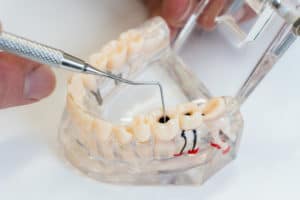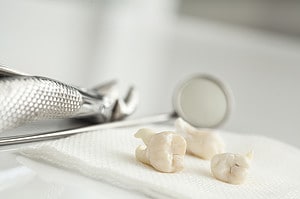When it is about maintaining oral health, most people don’t take it seriously, and later on, they suffer the consequences. The best way to maintain oral health is to go for professional dental checkups, which help prevent decay formation, damage, and infection. The dentist reviews the medical history, previous oral treatments, and general oral health in a dental checkup.
Patients who chip or crack their teeth assume it may not be significant, but it can worsen over time. Regular dental checkups are necessary for healthy teeth and gums, whereas making an appointment after six months can prevent oral-related issues.
How Often is a Dental Checkup Necessary?
People generally only care a little about their dental health if they face a problem. However, experts recommend having a dental checkup every six months, even without dental issues. A dental checkup after six months is helpful for the dentist to understand even minor dental problems that can be hard to detect.
Going for regular dental checkups ensures that you have excellent oral health and you don’t face any dental problems later. Other than that, you can see several benefits of dental checkups. People with regular dental appointments have lesser gum diseases and cavities, and their overall health remains perfect.
Why are Regular Dental Checkups Important?
Most dental experts insist their patients visit at least twice a year for their routine dental checkup appointments. The following are some of the essential benefits of dental checkups.
- With a regular dental checkup, your dentist can monitor your dental health, the condition of the teeth and gums, and whether there are cavities in the early stages.
- Monitoring allows the dentist to treat such conditions before they become painful or advanced.
- Dental checkups can help spot malocclusions or abnormal eruptions that the dentist can treat through braces or other dental options for young children and teens.
- Some people have health conditions that get discovered in a dental checkup.
- Dental checkups can diagnose diabetes in some people, as early signs in oral cavities appear before the systematic changes.
What Does a Dental Checkup Consist of?
When you visit the dentist for a dental checkup, the dentist performs the following steps during the appointment.
- The checkup begins with your detailed medical and dental history. Depending upon the complexity or simplicity of the history and current situation, dental check time consumed may vary.
- The next step is the evaluation of teeth, gums, and tissues in the mouth with the help of a dental mirror.
- The dentist evaluates the gums for signs of bleeding.
- The appointment also includes cavities detection, scouting for any loose tooth, and checking the bite. This way, finding the signs of food lodgment between the teeth becomes possible.
- The dentist also thoroughly evaluates your existing dental fillings, bridges, crowns, and implants.
- If the dentist suspects that there are deep cavities, then he may take dental X-rays.
- Your dentist will also evaluate your tongue and palate for any abnormalities.
- In the last step, the dentist performs dental cleaning before he gives you the date for the next dental visit.
Schedule a Dental Checkup in Aspendale Gardens, VIC, Australia
Your regular dental checkups are a standard service offered in Aspendale Gardens, VIC, Australia. Aspendale Gardens Dental Care is a better option because you can get a thorough dental health checkup to detect dental problems. With professional dental checkups, we will be able to see the tartar on your teeth quickly, know the reason for tooth pain, and detect the brown spots in your complex teeth area.
Let Aspendale Gardens Dentists help you know your dental problems so that you can have a dental checkup earliest by visiting us.











